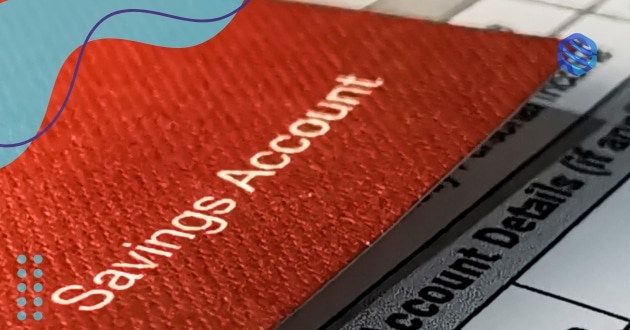Educational savings accounts in South Africa have become increasingly important as families look for ways to secure their children’s educational future. With the rising cost of education, saving early has become more of a necessity than an option.
Moreover, parents are constantly exploring different financial tools to ensure they can meet the educational demands of the future. While traditional savings accounts may serve general financial goals, educational savings accounts in South Africa offer more focused benefits, specifically tailored for schooling and university fees.
However, it is essential to understand how these accounts function and the benefits they provide. Knowing the features and terms of educational savings accounts in South Africa allows families to make informed decisions, contributing to the overall financial well-being of their household.
How Educational Savings Accounts Work

Educational savings accounts are specialized financial products aimed at helping parents and guardians save for future educational expenses.
These accounts often come with specific tax benefits or incentives to encourage long-term savings. In South Africa, various financial institutions offer these accounts, each with distinct features and requirements.
Benefits of Educational Savings Accounts
Tax Advantages
One of the most significant benefits of educational savings accounts is the potential for tax savings. Many of these accounts allow contributions to grow tax-free, which can significantly boost savings over time. In South Africa, there are also potential deductions for contributions made towards these accounts, making them even more appealing to parents.
Flexibility in Use
While the primary purpose of educational savings accounts is to fund education, some accounts offer flexibility in how the money can be used.
For example, if the funds are not needed for education, they may be redirected towards other future expenses, like starting a business or buying a home, depending on the account terms.
Choosing the Right Educational Savings Account
When selecting an educational savings account, it is crucial to compare different options and their terms. Factors such as interest rates, fees, and the accessibility of funds should all play a role in the decision-making process.
Consulting with a financial advisor can also help ensure that the chosen account aligns with long-term financial goals.
Investing for Long-Term Educational Goals
One of the strategies for growing funds in an educational savings account is through investing. Many parents explore various investment opportunities to increase the returns on their savings.
A popular option in South Africa is the Johannesburg Stock Exchange (JSE). If you’re wondering how to start investing in Johannesburg Stock Exchange, there are several straightforward steps you can follow to make the most of your investments.
By wisely investing in stocks or bonds, parents can significantly grow the value of their educational savings accounts over time.
Types of Educational Savings Accounts in South Africa
When considering educational savings accounts in South Africa, it is essential to know that there are different types available.
Each offers distinct features that cater to various financial needs and goals, allowing parents and guardians to choose the one that best suits their situation.
Fixed deposit accounts are a common option for saving towards education.
These accounts offer a fixed interest rate over a specific period, providing a reliable way to grow savings.
Although funds are not easily accessible during the term, they offer higher interest rates compared to regular savings accounts, making them an attractive option for long-term goals.
Unit trusts and other investment accounts offer the potential for higher returns by investing in stocks, bonds, or other financial instruments.
While these accounts come with more risk than fixed deposit accounts, they provide the opportunity for greater growth, which can be beneficial when saving for future education costs.
Planning Early for Education Expenses
It is never too early to start planning for your child’s education.
By opening educational savings accounts in South Africa, parents can take advantage of compound interest and long-term growth.
Early planning allows families to spread out contributions over time, reducing the financial burden when their children reach school or university age.
Starting early allows families to maximize the potential of their savings by taking advantage of compound interest.
Even small, regular contributions can grow significantly over the years. Furthermore, parents can ensure they have sufficient funds to cover rising tuition fees, which have been steadily increasing in South Africa.
Understanding Fees and Charges (Educational savings accounts in South Africa)
Every financial product comes with its own set of fees and charges, and educational savings in South Africa are no exception.
It is crucial to be aware of the different costs associated with maintaining these accounts, as high fees can erode the savings you’ve accumulated over time.
Most educational savings accounts come with management fees that may be charged annually or monthly.
These fees can vary widely depending on the financial institution and the type of account chosen. It’s important to compare different accounts to find one with minimal fees while still offering competitive interest rates.
Some educational savings accounts impose penalties for early withdrawals.
While the intention is to save for education, life can be unpredictable, and parents may need to access funds before their children reach school age. Understanding the terms around withdrawals can help avoid unexpected penalties.
Trusted Financial Institutions for Educational Savings Accounts
When selecting an educational savings account, it’s crucial to choose a reliable financial institution that offers competitive interest rates and flexible terms.
Many parents in South Africa turn to well-established institutions like Sanlam, known for providing tailored financial solutions, including educational savings accounts.
With their expertise, you can confidently plan for your child’s educational future while benefiting from their range of investment and savings products.
FAQ: Educational Savings Accounts in South Africa
1. What are educational savings accounts in South Africa?
Educational savings in South Africa are specialized financial products designed to help parents and guardians save money for their children’s future education expenses. These accounts often offer tax advantages and higher interest rates compared to regular savings accounts.
2. How do I open an educational savings account in South Africa?
To open an educational savings account, you need to approach a financial institution that offers this service. Many banks and investment firms, such as Sanlam, provide a variety of options. You’ll typically need to provide identification, proof of income, and complete an application form.
3. Are there tax benefits for using educational savings accounts in South Africa?
Yes, many educational savings accounts come with tax benefits. Contributions can grow tax-free, and some accounts offer tax deductions or exemptions, depending on the institution and the account type.
Conclusion: Educational savings accounts in South Africa
Educational savings in South Africa offer a practical solution for families aiming to secure their children’s educational future. With various account options available, parents can choose the one that best fits their financial situation and long-term goals.
By starting to save early and taking advantage of tax benefits, families can maximize their savings potential. Whether through fixed deposit accounts or investment options, these accounts provide a reliable way to prepare for the rising costs of education.
Ultimately, the key to success is careful planning and informed decision-making. Choosing the right educational savings account will ensure that you are fully prepared to meet the financial demands of your child’s education when the time comes.


